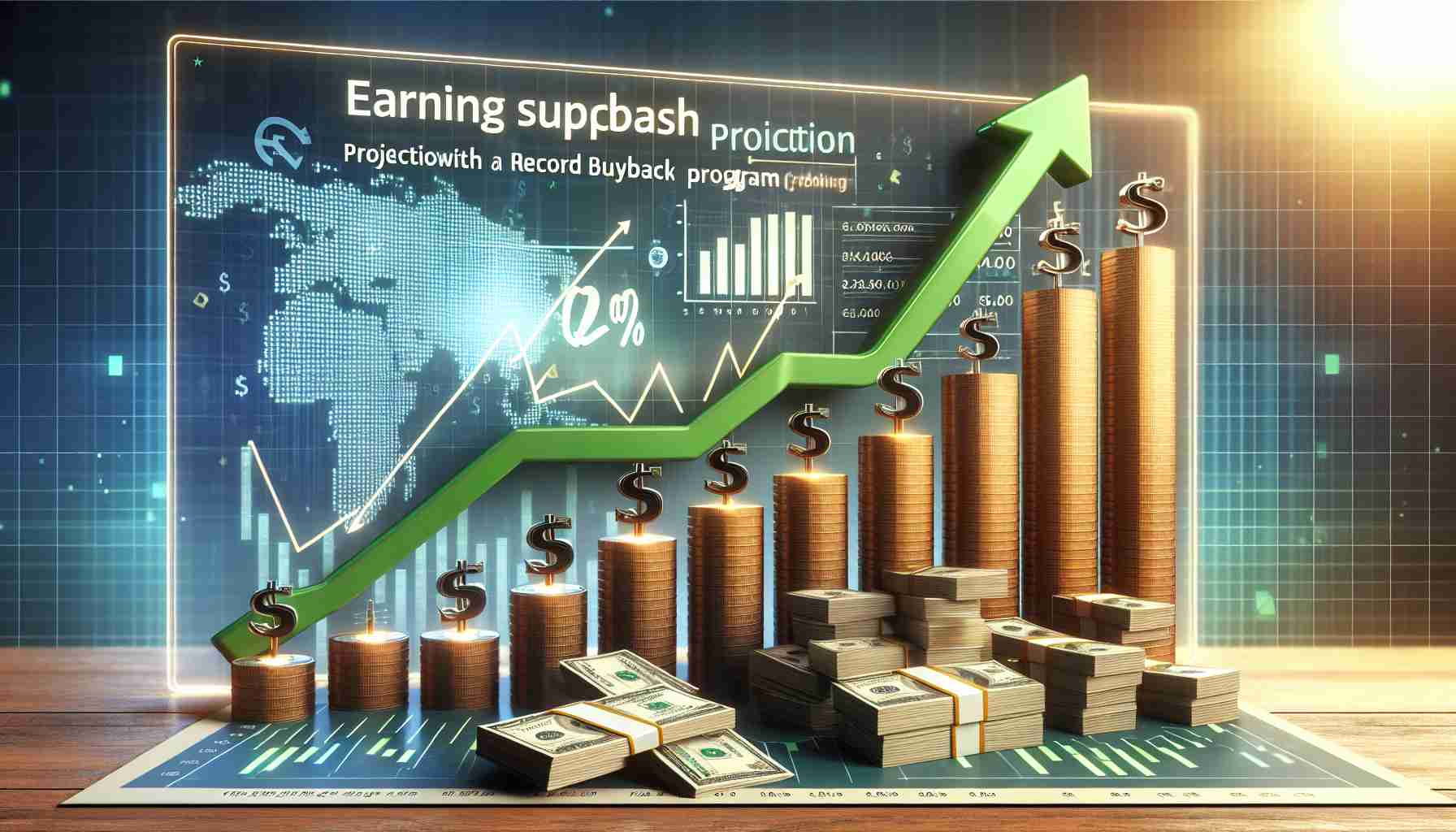In a stellar Q2 FY24 earnings release, Apple Inc. (NASDAQ:AAPL) surpassed Wall Street expectations, particularly shining in the hardware sector that was presumed to struggle. Moreover, the technology giant announced an unparalleled share repurchase scheme, setting a historical precedent for the largest repurchase program to date.
Apple’s financial revelations arrived almost concurrently with Berkshire Hathaway’s (NYSE:BRK.B) Q1 FY24 earnings, revealing a strategic slimming of its stake in Apple. The trimming of the holding company’s Apple position, from a mighty $174.3 billion to $135.4 billion, unfolds amidst market concerns over potential challenges looming for Apple. The reduction, attributed by Berkshire to “tax reasons,” hints at potential market perturbations for Apple’s stock.
Despite these concerns, the conviction in Apple’s capability to revitalize its innovation pipeline and revamp hardware sales remains firm. In the interim, Apple’s burgeoning services division might act as a life preserver for the company’s growth.
This earnings report also sheds light on Apple’s meticulous approach to share buybacks as a means to elevate shareholder value. Referencing historical trends, Apple’s management has persistently reduced its share count with strategic repurchases, although at a slower pace in the post-pandemic era. Contrasting Apple with Microsoft (NASDAQ:MSFT), it’s interesting to note Apple’s relatively higher debt servicing costs, which could potentially hamstring its repurchase strategy.
Despite hurdles, Apple’s hefty war chest for buybacks, estimated at approximately $140 billion, represents a tantalizing 5% of its shares based on recent market closings. The maneuvering of such financial might signals Apple’s sheer confidence in its intrinsic value and long-term prospects.
Key Questions and Answers:
– Q: What are the implications of Apple’s record share buyback program?
A: Apple’s share buyback program reflects the company’s confidence in its financial stability and future prospects. Buybacks can increase the value of remaining shares, appease investors, and signal the management’s belief that the stock is undervalued.
– Q: How does the decrease in Berkshire Hathaway’s stake in Apple impact the company?
A: While the sell-off could raise questions about investor confidence in Apple, it was attributed to “tax reasons.” The reduction in Berkshire Hathaway’s position does not necessarily reflect a negative view on Apple’s performance or future, but the market may still react to the actions of such a notable investor.
– Q: What are the challenges that may lie ahead for Apple?
A: Potential challenges for Apple include market saturation, increased competition in the tech industry, maintaining a pace of innovation, supply chain disruptions, regulatory scrutiny, and adapting to changing consumer demands.
Key Challenges and Controversies:
– Market Saturation: As the market for smartphones and other hardware becomes more saturated, Apple may find it harder to sustain its growth rates in these segments.
– Supply Chain: Global disruptions, such as the COVID-19 pandemic and geopolitical tensions, have impacted Apple’s supply chain, causing delays and shortages.
– Regulatory Scrutiny: Apple has faced increased regulatory scrutiny worldwide, including issues related to antitrust and privacy concerns, which could lead to fines and changes in business practices.
– Advantages and Disadvantages of the Buyback Program:
Advantages:
– Share buybacks can lead to a higher earnings per share (EPS), as the number of outstanding shares decreases.
– The buyback program can provide support to the stock price by creating constant demand for shares.
– It’s a flexible way for the company to return value to shareholders without the commitment of a regular dividend.
Disadvantages:
– The use of cash for buybacks can be controversial if it’s perceived that the funds could be better invested in business growth or innovation.
– High debt servicing costs, compared to a company like Microsoft, could be a disadvantage if Apple’s earnings are under pressure, limiting the funds available for buybacks.
– Heavy reliance on buybacks might be criticized if viewed as a tactic to prop up share prices in the absence of actual operational growth.
For more information:
You can visit Apple’s official website or Berkshire Hathaway’s official website for official press releases and further corporate information. For financial performance comparisons, you might also explore Microsoft’s official website. Please note that these links are provided for quick reference and are based on the assumption that these URLs, representing major corporate entities, will remain valid and relevant.
